Reward system
Recent articles
‘What Is Intelligence?’: An excerpt
In his new book, published today, Blaise Agüera y Arcas examines the fundamental aspects of intelligence in biological and artificial systems. In this excerpt from Chapter 4, he examines temporal difference, a reinforcement learning algorithm.
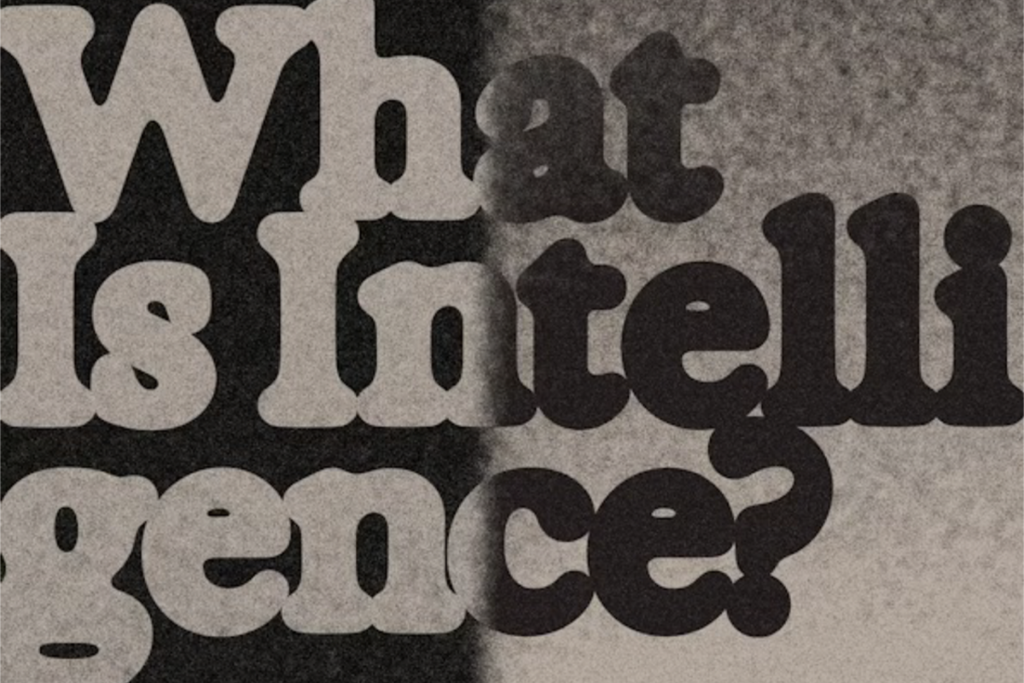
‘What Is Intelligence?’: An excerpt
In his new book, published today, Blaise Agüera y Arcas examines the fundamental aspects of intelligence in biological and artificial systems. In this excerpt from Chapter 4, he examines temporal difference, a reinforcement learning algorithm.
Some dopamine neurons signal default behaviors to reinforce habits
Movement-sensing neurons that target the striatum influence a mouse’s choice of action by favoring routine.
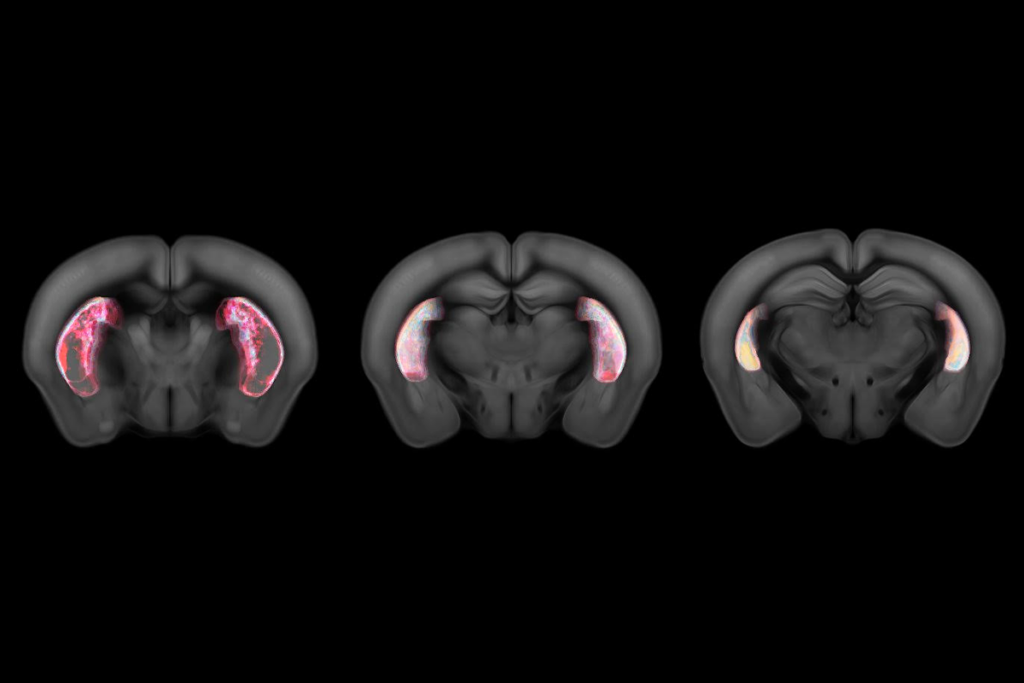
Some dopamine neurons signal default behaviors to reinforce habits
Movement-sensing neurons that target the striatum influence a mouse’s choice of action by favoring routine.
‘Understudied secret’ in brain dampens nicotine drive in mice
The interpeduncular nucleus produces an aversion to nicotine, even at low doses, and helps moderate how rewarding mice find the drug.
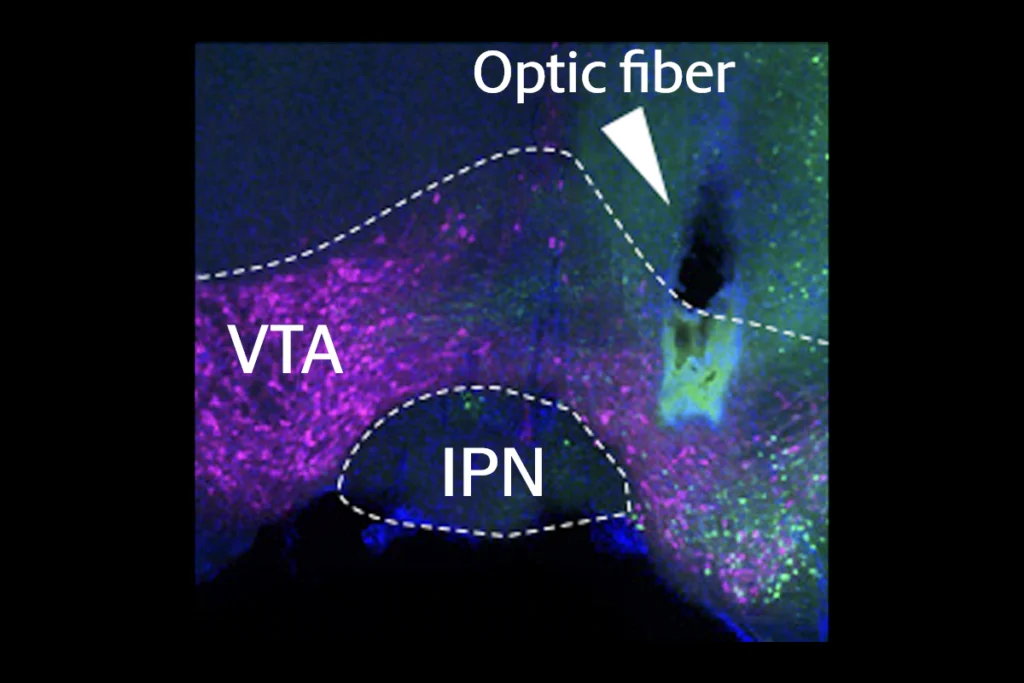
‘Understudied secret’ in brain dampens nicotine drive in mice
The interpeduncular nucleus produces an aversion to nicotine, even at low doses, and helps moderate how rewarding mice find the drug.
In case you missed it: Standout news stories from 2024
These five stories—on the pregnant brain, a failed imaging method and more—top our list of some of the most notable neuroscience research findings this year.
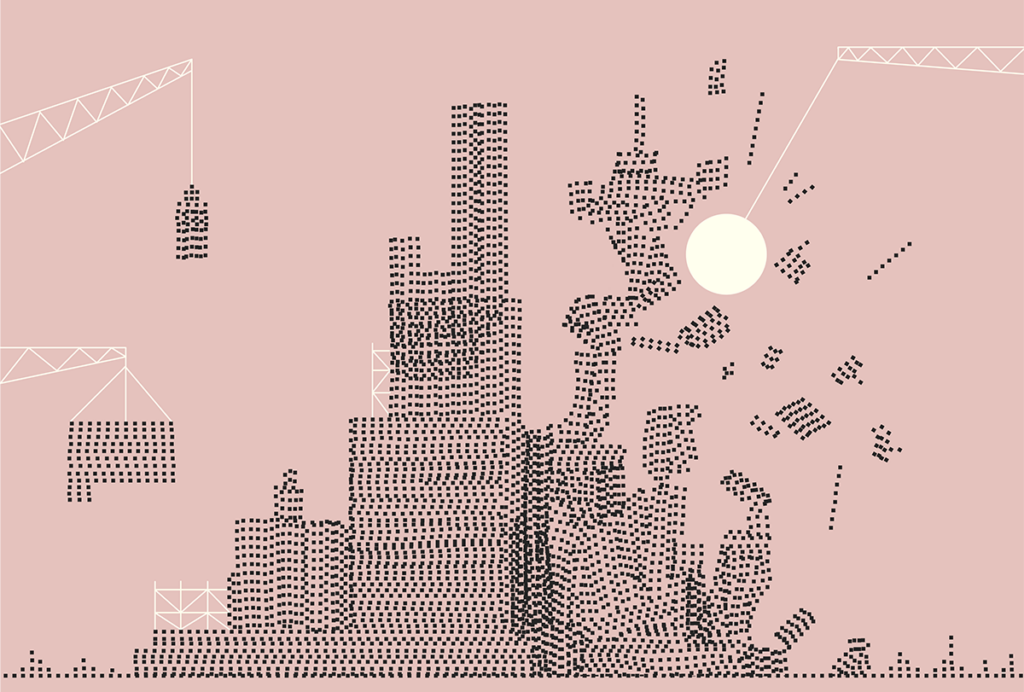
In case you missed it: Standout news stories from 2024
These five stories—on the pregnant brain, a failed imaging method and more—top our list of some of the most notable neuroscience research findings this year.
Vijay Namboodiri and Ali Mohebi on the evolving story of dopamine’s role in cognitive function
Researchers discuss the classic stories of dopamine’s role in learning, ongoing work linking it to a wide variety of cognitive functions, and recent research suggesting that dopamine may help us "look back" to discover the causes of events in the world.
Vijay Namboodiri and Ali Mohebi on the evolving story of dopamine’s role in cognitive function
Researchers discuss the classic stories of dopamine’s role in learning, ongoing work linking it to a wide variety of cognitive functions, and recent research suggesting that dopamine may help us "look back" to discover the causes of events in the world.
Reconstructing dopamine’s link to reward
The field is grappling with whether to modify the long-standing theory of reward prediction error—or abandon it entirely.
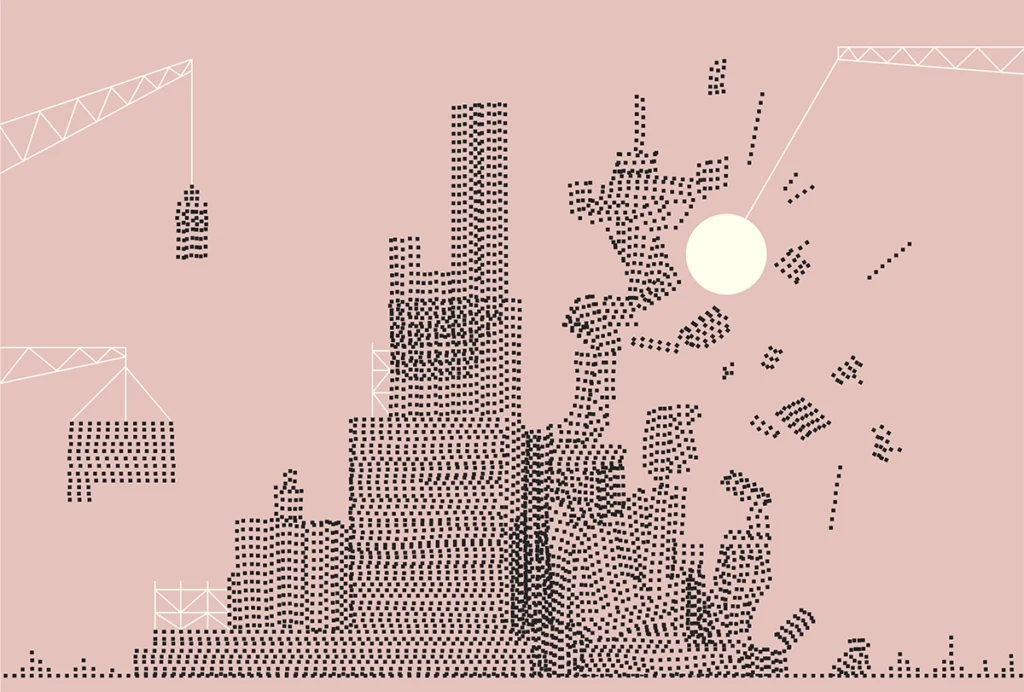
Reconstructing dopamine’s link to reward
The field is grappling with whether to modify the long-standing theory of reward prediction error—or abandon it entirely.
Dopamine and the need for alternative theories
Some experimental findings are inconsistent with the dominant model of reward prediction error, highlighting the need for alternative testable and falsifiable models for dopamine function.
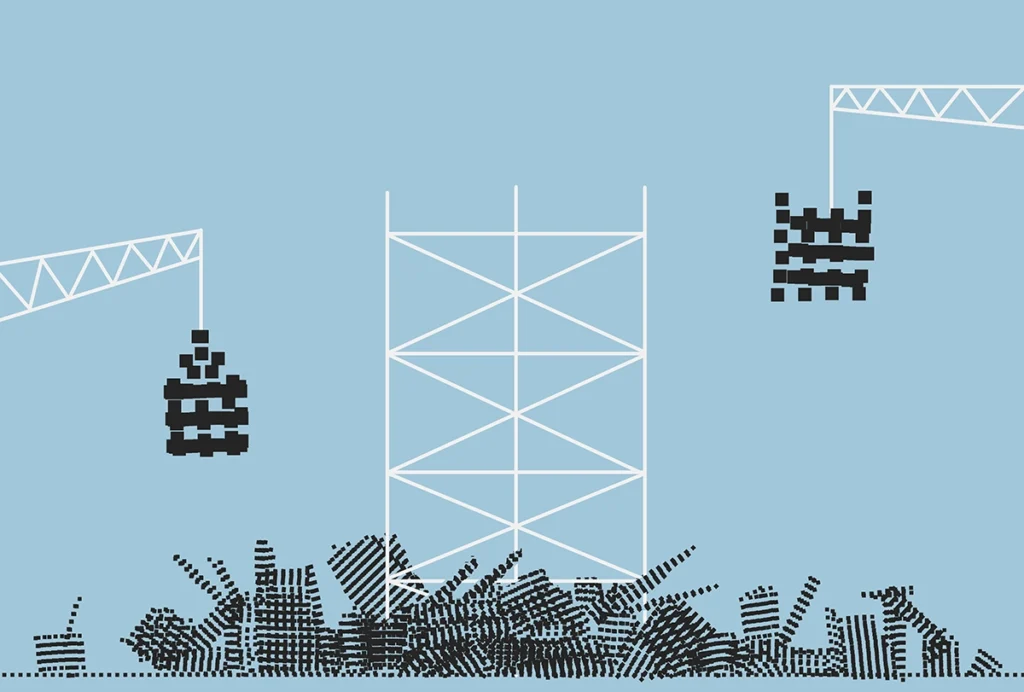
Dopamine and the need for alternative theories
Some experimental findings are inconsistent with the dominant model of reward prediction error, highlighting the need for alternative testable and falsifiable models for dopamine function.
Does a new theory of dopamine replace the classic model?
My answer would be no, but the model poses challenges that will sharpen our understanding of dopamine and learning.

Does a new theory of dopamine replace the classic model?
My answer would be no, but the model poses challenges that will sharpen our understanding of dopamine and learning.
Cocaine, morphine commandeer neurons normally activated by food, water in mice
Confirming a long-held hypothesis, repeated exposure to the drugs alters neurons in the nucleus accumbens, the brain’s reward center, and curbs an animal’s urge for sustenance.
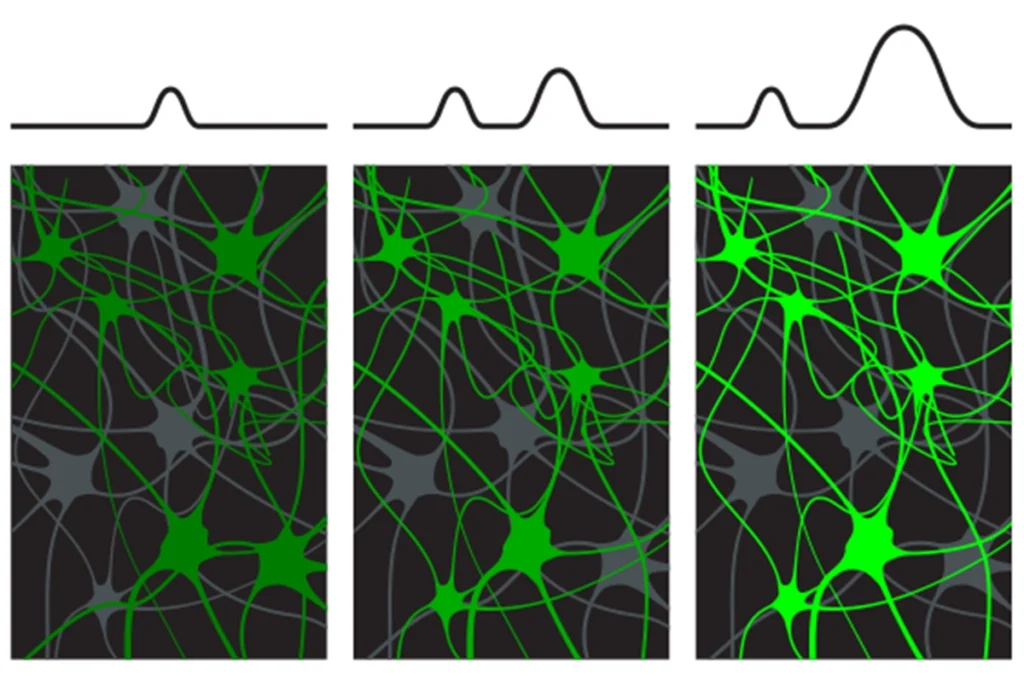
Cocaine, morphine commandeer neurons normally activated by food, water in mice
Confirming a long-held hypothesis, repeated exposure to the drugs alters neurons in the nucleus accumbens, the brain’s reward center, and curbs an animal’s urge for sustenance.
Explore more from The Transmitter
Neuro’s ark: Spying on the secret sensory world of ticks
Carola Städele, a self-proclaimed “tick magnet,” studies the arachnids’ sensory neurobiology—in other words, how these tiny parasites zero in on their next meal.

Neuro’s ark: Spying on the secret sensory world of ticks
Carola Städele, a self-proclaimed “tick magnet,” studies the arachnids’ sensory neurobiology—in other words, how these tiny parasites zero in on their next meal.
Autism in old age, and more
Here is a roundup of autism-related news and research spotted around the web for the week of 2 March.

Autism in old age, and more
Here is a roundup of autism-related news and research spotted around the web for the week of 2 March.
Lack of reviewers threatens robustness of neuroscience literature
Simple math suggests that small groups of scientists can significantly bias peer review.

Lack of reviewers threatens robustness of neuroscience literature
Simple math suggests that small groups of scientists can significantly bias peer review.